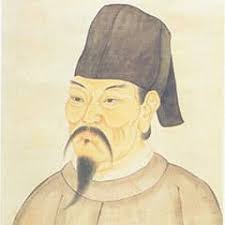
By now it’s no news that social networks online are not only bad for you but bad for us (or should I say, “U.S.”?). If your new year’s resolution was to ditch the people who make you and your personal information their product (read: Facebook, Instagram, et al.), you might consider a more ancient form of social networking: the answering poem.
What, you ask, is an answering poem? Think of the telephone. You call a friend. He or she answers. Only it takes a bit of time, because your “call” takes the form of a poem, and your friend’s response takes the form of a responding poem.
Put them together and what have you got? Something the Earl of Sandwich, in a mood more reflective than mayonnaise, might like.
Answering poems are on my mind because I’ve been poking around in the book, Robert Bly: Collected Poems, wherein we get some best hits from Bly’s various and sundry books. In his 1973 collection, Jumping Out of Bed, we find answering poems between Wang Wei and P’ei Ti, translated by Bly.
Let’s make like a party line and listen in:
“The Walnut Tree Orchards”
WANG WEI: In the old days the serious man was not an “important
person.” He thought making decisions was too complicated for
him. He took whatever small job came along.
Essentially he did nothing, like these walnut trees.
P’EI TI: I soon found doing nothing was a great joy to me.
Look, you see, here I am! Keeping my ancient promise.
Let’s spend today just strolling around these walnut trees.
The two of us will nourish the ecstasies Chuang Tzu loved.
“The Hill of Hua-Tzu”
WANG WEI: The birds fly away into the air that never ends;
the magnificence of fall comes back to the mountain.
Whenever I walk up or down Hua-Tzu hill,
my whole body feels confusion and inner suffering.
P’EI TI: The sun goes down; there is wind sound in the pines.
Walking home I notice dew on the grass.
The white clouds look up at me from the tracks of my
shoes. The blue from the mountain touches my clothes.
“The Creek by the Luan House”
WANG WEI: Autumn rain and sudden winds.
The water plunges, bouncing off the rocks.
Waves leap aimlessly over each other.
The white heron is alarmed and lands.
P’EI TI: A man could hear the water-sound far off.
I walk down looking for the ford.
Ducks and egrets swim away, and then
veer back, longing to be near people.
“The Magnolia Grove”
WANG WEI: The mountain receives the last sunshine of fall.
Flocks fly off following the first that leaves.
Occasionally something emerald flashes in the trees.
The evening dark has nowhere to settle down.
P’EI TI: Settling down at dusk from the dome of light
bird voices get mingled with the river sounds.
The path beside the river winds off into the distance.
Joy of solitude, will you ever come to an end?
Of course, in 8th-century China, nature is front page news every day, as are the charms of doing nothing (known, philosophically, as “wu wei,” or “non-action”). This couldn’t be farther from where we are today, in the Realm of Instant Gratification, where we are conditioned to constantly check cellphones (read: “binkies”) for messages and “likes.”
Lord, what would Wang Wei and P’ei Ti make of what we’ve become? Nothing human, I’m guessing. Something that has evolved far away from what they knew in their day.
That said, if you want to try an answering poem with a fellow poet, it doesn’t have to be about nature. No. Subject matter is your call. And the response is your answering call.
And, here’s the pay-off: in doing so, neither of you are burning time on social networks or your addicting binkie—all good, as they say on the Hill of Hua-Tzu.
